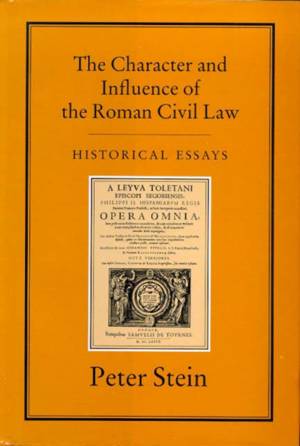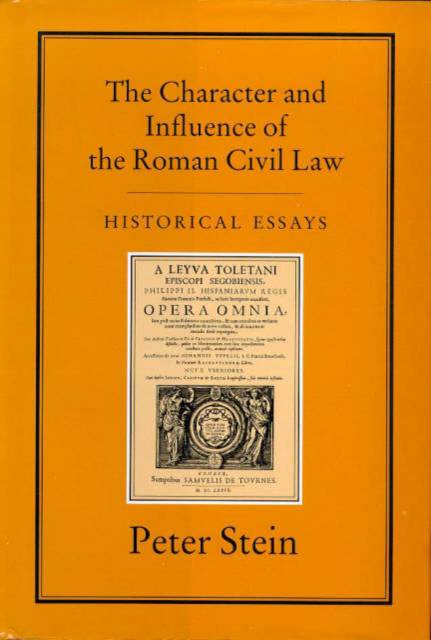
En raison d'une grêve chez bpost, votre commande pourrait être retardée. Vous avez besoin d’un livre rapidement ? Nos magasins vous accueillent à bras ouverts !
- Retrait gratuit dans votre magasin Club
- 7.000.000 titres dans notre catalogue
- Payer en toute sécurité
- Toujours un magasin près de chez vous
En raison de la grêve chez bpost, votre commande pourrait être retardée. Vous avez besoin d’un livre rapidement ? Nos magasins vous accueillent à bras ouverts !
- Retrait gratuit dans votre magasin Club
- 7.000.0000 titres dans notre catalogue
- Payer en toute sécurité
- Toujours un magasin près de chez vous
Description
Goethe is said to have likened the Roman civil law to a duck: sometimes it is visible, swimming prominently on the surface of the water, at other times it is hidden, diving amid the depths. but it is always there. This may be said to be true not only in continental Europe and Scotland, where Roman law has been a dominant influence, but also in England and the U.S.A., where Roman law has often informed and supplemented Common law. None of the great writers on Common law, with the exception perhaps of Coke, failed to take Roman law in to consideration, especially on the matters of legal theory. Indeed the differences between the two systems can easily be exaggerated. Ne one is better qualified to write on these matters than Peter Stein; this collection of his articles covers both the nature and the tradition of Roman law and ranges from classical to modern times. The Character and Influence of the Roman Civil Law includes discussions of the ethos and principles of Roman law and of their transmission and transformation in medieval and modern times. Attention is drawn to the working of Roman law in San Marinom which retains the uncodified ius commune. Civil lawyers in England whose work is examined include Vacarius, Thomas Smith and Thomas Legge. Roman law in Scotland is looked at in depth, with special consideration for the natural law tradtition there. A piece on the origin of the four stage theory of social development, which grew out of that tradition and was adopted by Adam Smith, appears for the first time. Finally Professor Stein shows the attraction of Roman law to lawyers in the U.S.A. when they were trying to establish their own legal system following Independence.
Spécifications
Parties prenantes
- Auteur(s) :
- Editeur:
Contenu
- Nombre de pages :
- 480
- Langue:
- Anglais
Caractéristiques
- EAN:
- 9781852850050
- Date de parution :
- 01-11-03
- Format:
- Livre relié
- Format numérique:
- Genaaid
- Dimensions :
- 156 mm x 234 mm
- Poids :
- 820 g

Les avis
Nous publions uniquement les avis qui respectent les conditions requises. Consultez nos conditions pour les avis.






